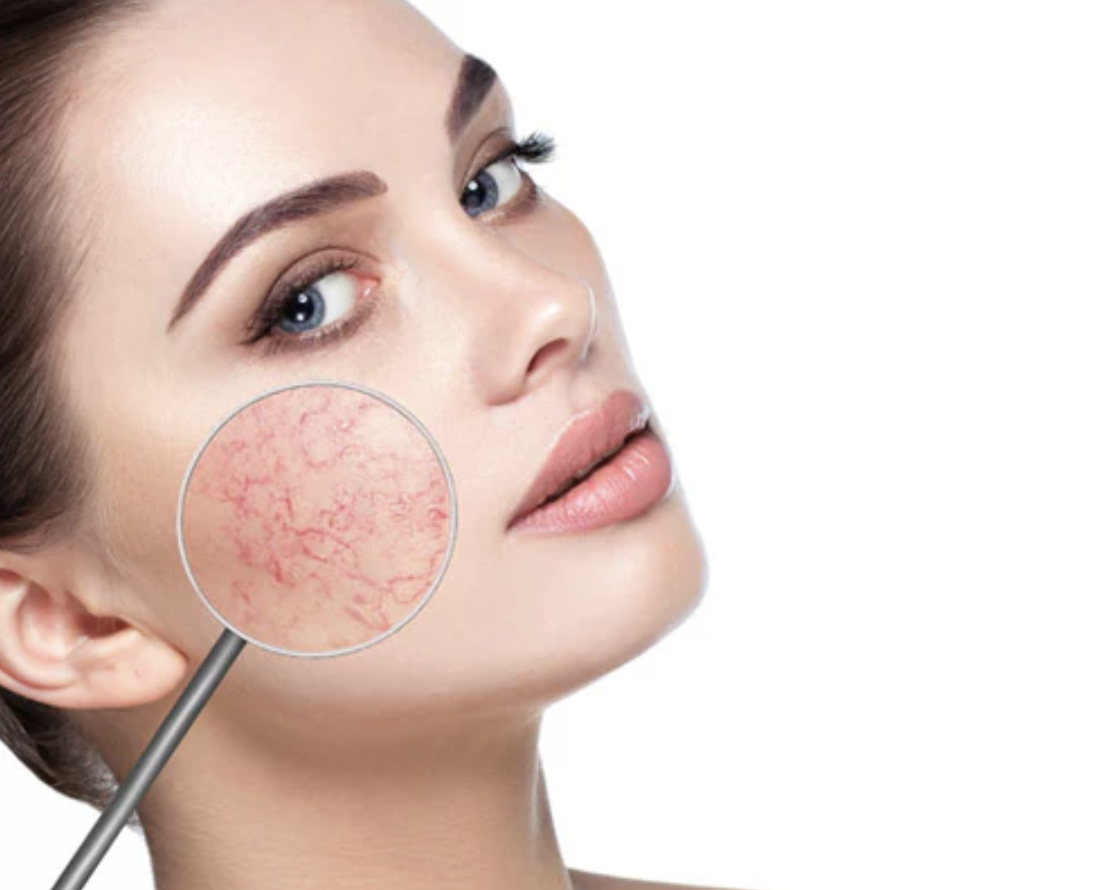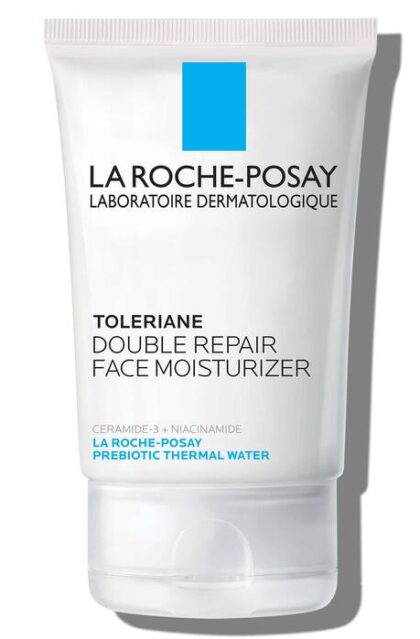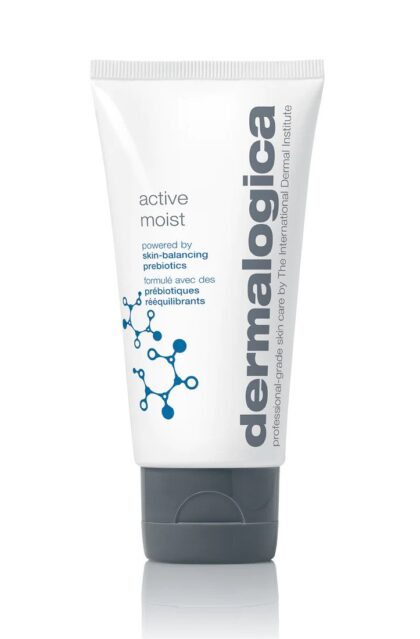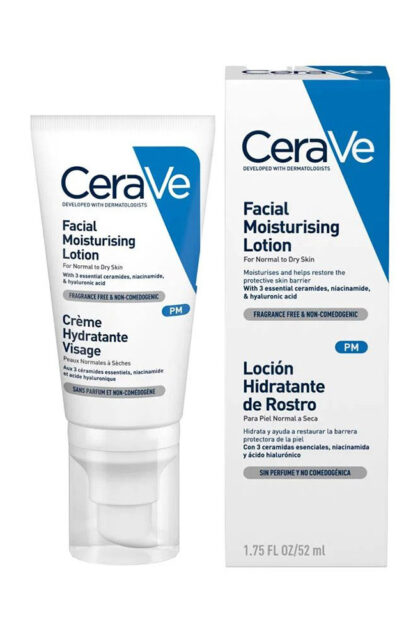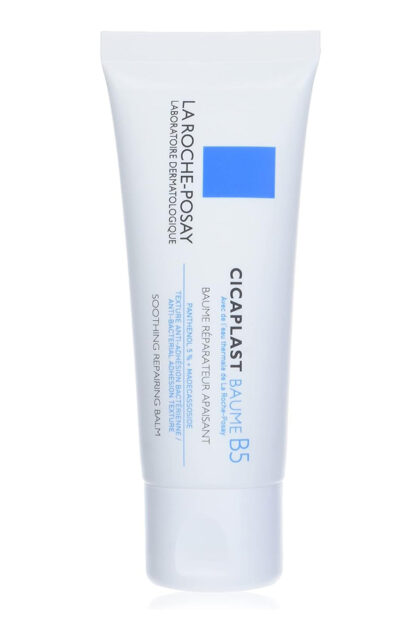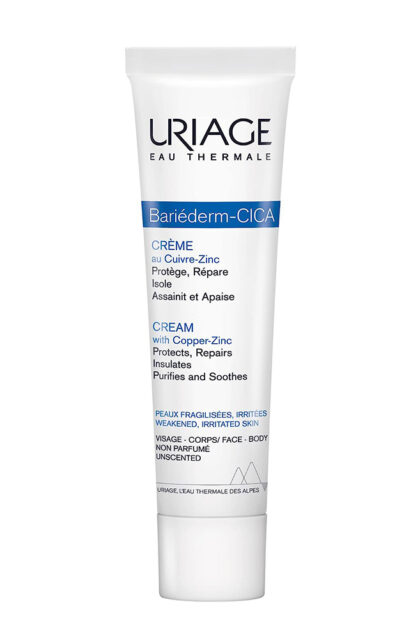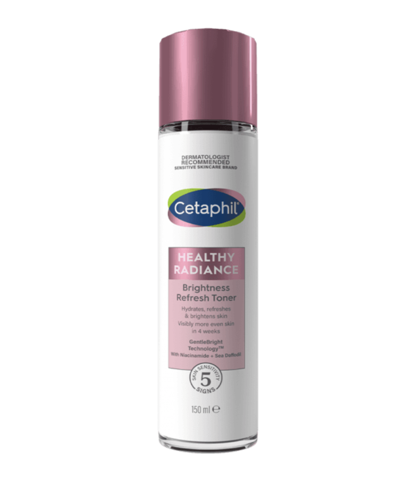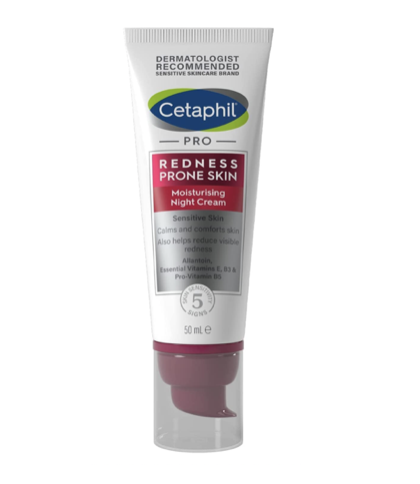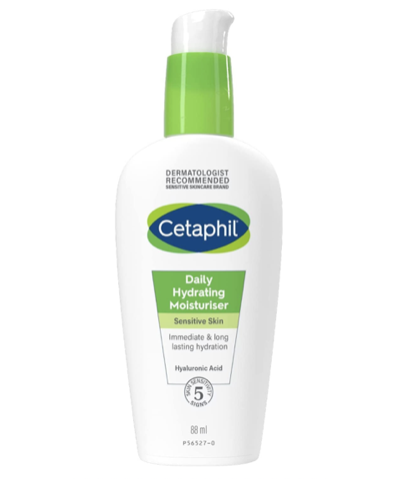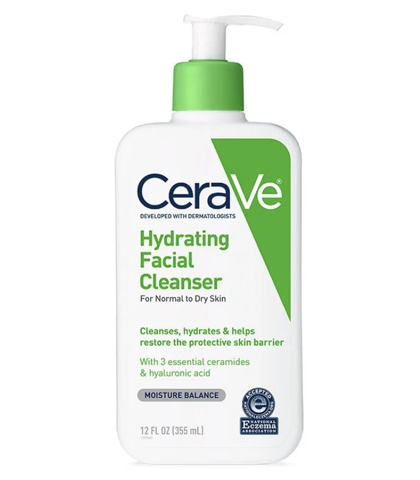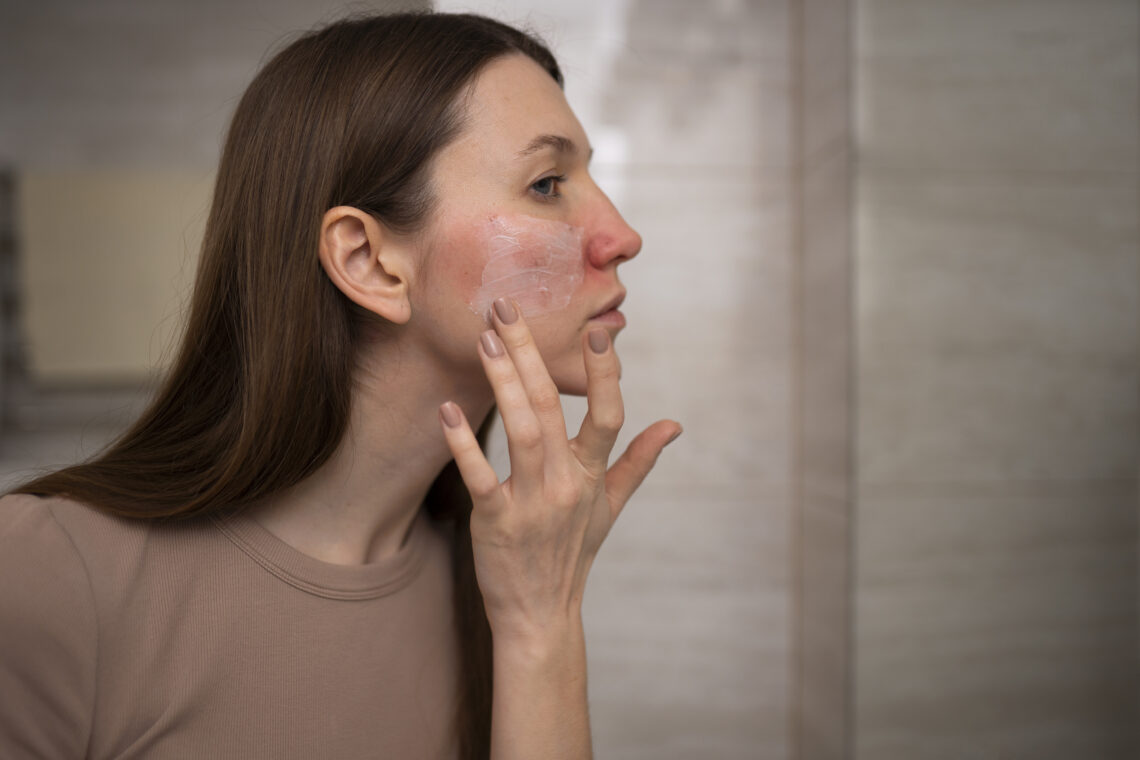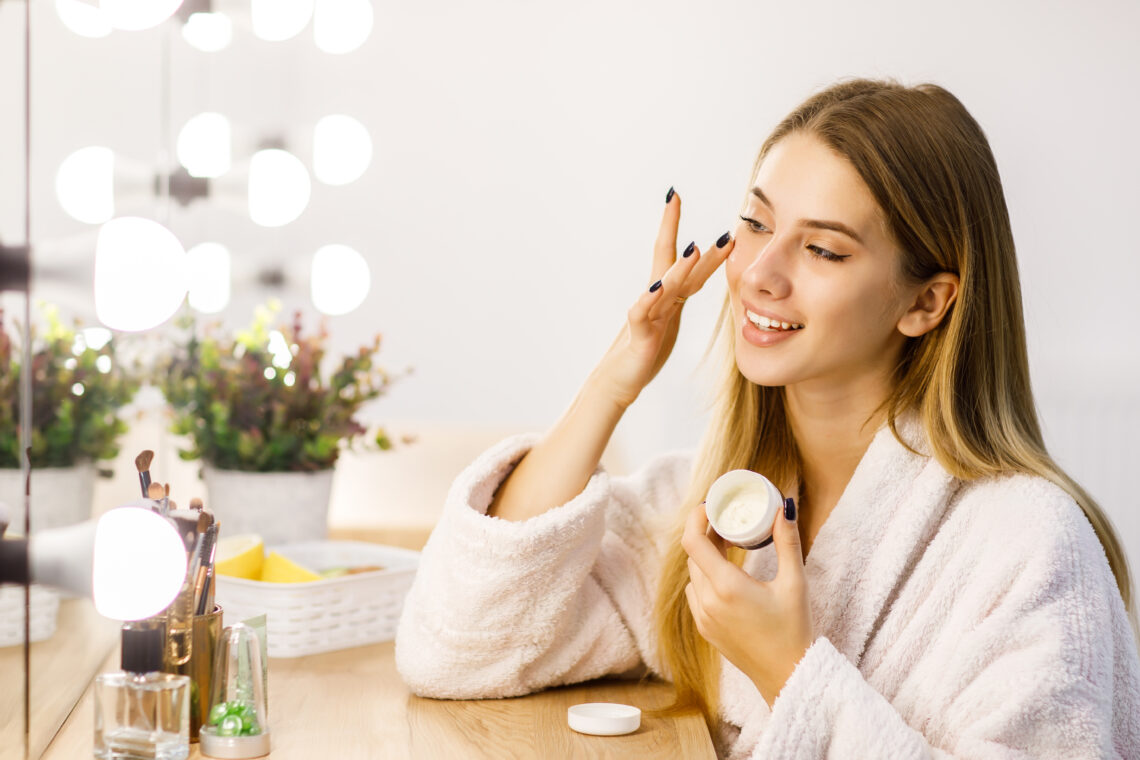Many people have sensitive skin, with 71% of adults affected, according to a study. Sensitive skin is prone to adverse reactions and irritations from substances or environmental factors. It causes discomfort, redness, itching, or a stinging sensation after using certain skincare products, contacting specific materials, or encountering certain weather conditions. Navigating sensitive skin can be challenging, requiring gentle care and tailored products. If you have sensitive skin, you know the frustration of dealing with redness, dryness, itching, and discomfort. But don’t worry, this guide to skincare for sensitive skin is here to help.
Understanding the unique needs of sensitive skin is the first step towards establishing an effective skincare routine. Unlike other skin types, this skin type requires products that are free from harsh ingredients, fragrances, and potential allergens. It demands a gentle touch, an emphasis on hydration, and a cautious approach to trying new products.
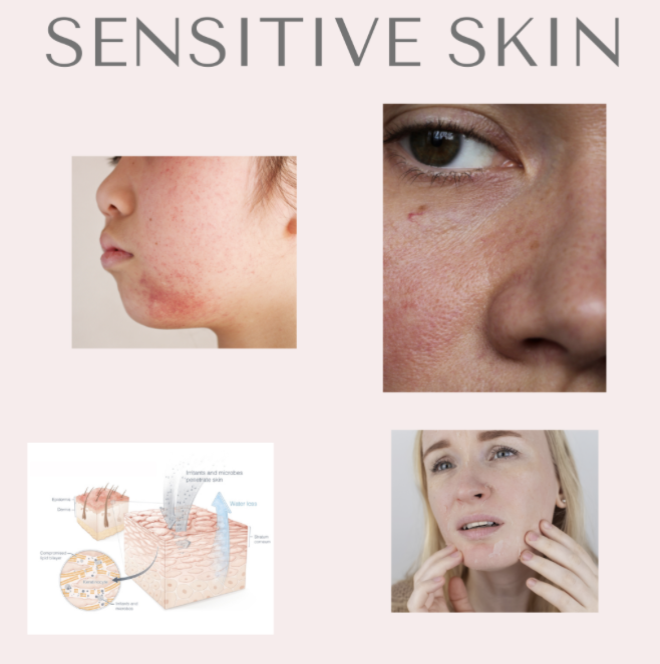
Here are the characteristics and causes of sensitive skin:
- Reactivity: reacts quickly and strongly to a variety of stimuli, including cosmetics, scents, abrasive detergents, and high or low temperatures.
- Fragile Barrier: frequently have a weaker version of the skin’s natural protective barrier, which makes them more vulnerable to irritants and allergens.
- Prone to Allergies: may be more prone to allergic reactions from specific chemicals, such as contact dermatitis or hives.
- Redness: Especially in response to stimuli like temperature changes, spicy meals, or intense emotions, may appear flushed or red.
- Dryness: Due to its difficulty in efficiently retaining moisture, this skin type is often drier and may feel tighter or flakier.
Skin Sensitivity Causes:
- Genetic Predisposition: Some people may inherit from their parents a propensity making them more susceptible to responses and irritations.
- Environmental Factors: such UV radiation, pollution, and extreme weather (cold, wind, or hot).
- Allergens and Irritants: Sensitive skin may react to several things, including scents, preservatives, colours, and specific chemicals in skincare or cosmetic products.
- Skin Disorders: Eczema, rosacea, and psoriasis are a few skin disorders that frequently interact and make it more reactive.
- Age: Skin tends to be thinner and more delicate in babies and older people, making them more sensitive.
Here are some vital pointers for efficiently caring for sensitive skin:
- Patch Test: Before trying a new skincare or cosmetic product, perform a patch test. Apply a small amount of the product to a discreet area of your skin, such as the inside of your wrist or behind your ear. Monitor the area for 24-48 hours to check for any adverse reactions or irritation. If there is no negative response, it is generally safe to use the product.
- Use Gentle Cleansers: Opt for mild, fragrance-free cleansers that are specifically formulated to suit this skin type. Look for products labelled as hypoallergenic, non-comedogenic, and soap-free. Avoid harsh cleansers or those containing ingredients like sulfates, fragrances, or dyes that may trigger sensitivity.
- Moisturize Regularly: Hydration is crucial for sensitive skin. Choose moisturizers that are gentle, fragrance-free, and formulated for sensitive skin. Look for ingredients like hyaluronic acid, glycerin, ceramides, or aloe vera, which help to soothe and hydrate the skin. Apply moisturizer twice a day, especially after cleansing or bathing, to lock in moisture and strengthen the skin barrier.
- Sun Protection: Protect your skin from the damaging effects of the sun by wearing a broad-spectrum sunscreen with a high SPF (at least 30). Choose physical sunscreens containing ingredients like zinc oxide or titanium dioxide, as they are less likely to cause irritation compared to chemical sunscreens. Reapply sunscreen every two hours, or more frequently if sweating or swimming.
- Avoid Irritants: Identify and avoid skincare products or ingredients that tend to irritate your skin. Common irritants include fragrances, alcohol, harsh exfoliants, and certain preservatives. Read product labels carefully and choose gentle, fragrance-free, and non-irritating options.
- Be Mindful of Exfoliation: Exfoliation can help remove dead skin cells, but it can also be too harsh for your skin. Oopt for mild exfoliation methods such as gentle chemical exfoliants (AHAs or BHAs) or enzymatic exfoliators. Limit exfoliation to once or twice a week to avoid over-exfoliation and irritation.
- Stay Hydrated: Drinking an adequate amount of water helps maintain overall skin hydration. It is recommended to drink at least 8 glasses of water per day to keep your skin hydrated from within.
- Protect Against Environmental Factors: Shield your skin from extreme weather conditions, such as cold winds or excessive heat, as they can trigger sensitivity. Use scarves, hats, or protective clothing to cover your skin when necessary.
- Avoid Hot Water: Hot water can strip the skin of its natural oils and exacerbate sensitivity. Use lukewarm water for cleansing and bathing, and limit your shower or bath time to prevent excessive dryness.
- Consult a Dermatologist: If you’re struggling to manage your sensitive skin or experiencing persistent issues, it’s advisable to seek professional guidance. A dermatologist can provide personalized advice, recommend suitable products, and prescribe medication if needed.
Product recommendations:
-
La Roche-Posay Toleriane Sensitive Double Repair Moisturiser
-
Dermalogica Active Moist Hydrating Oil-free Moisturiser
-
CeraVe Facial Moisturising Lotion PM Ultra Lightweight
-
La Roche-Posay Cicaplast Baume B5 Repairing Balm
-
Uriage Bariederm Repairing Cica Cream with Cu-Zn
-
Cetaphil Healthy Radiance Brightness Refresh Face Toner
-
Cetaphil PRO Night Cream
-
Cetaphil Daily Hydrating Face Moisturiser
-
CeraVe Hydrating Cleanser
References:
https://www.lorrainesskincare.co.uk/what-is-sensitive-skin/
https://www.premiumbeautynews.com/en/71-of-adults-have-sensitive-skin,21036#nb1
https://www.medicalnewstoday.com/articles/sensitive-skin#summary
https://www.harpersbazaar.com/uk/beauty/skincare/a32685310/sensitive-skin-tips/#
https://www.dailymail.co.uk/best-buys/beauty-and-wellness/best-skincare-sensitive-skin

